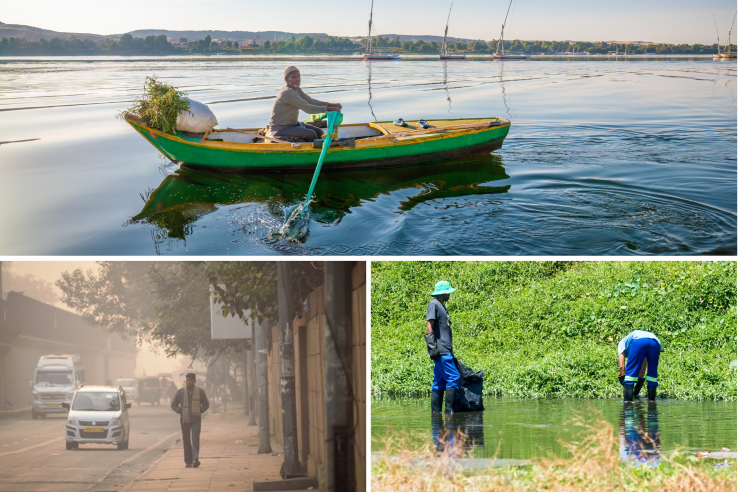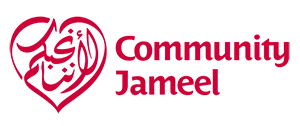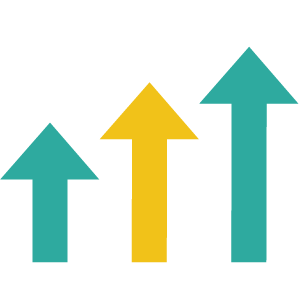Co-diagnose the most pressing air and water challenges and opportunities for policy innovation.
Air and Water Labs

In partnership with Community Jameel, the Air and Water Labs work closely with government partners to co-generate evidence-based solutions for the most pressing air and water challenges in Africa, the Middle East and North Africa (MENA), and South Asia.
The Air and Water Crisis
There is no substitute for clean air and water. Africa, MENA, and South Asia are on the front lines of the global air and water crises, facing high levels of water scarcity and worsening air and water quality that leads people to live shorter and sicker lives.
Solutions to these problems are scarce, often because data and evidence on policies that work are limited. The resulting uncertainty around the most effective course of action makes it difficult for governments to enforce policies, and ultimately further harms vulnerable communities.
In 2020, in partnership with King Philanthropies, J-PAL launched the King Climate Action Initiative (K-CAI), our flagship program to vastly expand work on climate change and poverty across J-PAL worldwide.
Extending K-CAI’s work and in partnership with Community Jameel, J-PAL Africa, MENA, and South Asia are leading three Air and Water Labs with government partners in Egypt, India, and South Africa. Together the labs aim to improve clean air and water access for millions of people by informing the decisions of city, state, and national governments.
Partner

About the Air and Water Labs
The Air and Water Labs are embedded within key government partners to increase their access to evidence and spark collaboration with researchers to innovate, test, and scale evidence-informed air and water policies. Through the labs in Africa, MENA, and South Asia, J-PAL will work with our government partners to:


Expand policymakers’ access to and use of high-quality air and water data, because better and more transparent data on the extent and sources of air and water pollution can help build capacity and political will to change the status quo.

Co-design potential solutions informed by existing evidence, design more targeted policies, and use data to monitor progress.

Co-generate evidence on promising solutions through pilots and randomized evaluations leveraging existing and new data sources, measure the effectiveness of potential solutions, and determine which ones should be scaled up.

Support scaling of air and water policies and programs that are found to be effective
Air and Water Labs Worldwide
Solutions and Advancements through Research for Water and Air (SARWA)

The Air and Water Lab in India is known as the Solutions and Advancements through Research for Water and Air (SARWA). J-PAL South Asia is exploring collaboration opportunities with the Gujarat Pollution Control Board, the Department of Drinking Water and Sanitation, and other key state and central government partners under SARWA as part of its efforts to accelerate the adoption of scientific evidence and data for designing impactful air and water policies.
Water, Air, and Energy (WAE) Lab

The Air and Water Lab in South Africa is known as the Water, Air, and Energy (WAE) Lab. J-PAL Africa is collaborating with the City of Cape Town to co-generate research and inform the scaling of evidence-based programs and policies that effectively improve access to clean air, water, and reliable energy for Capetonians.
Hub of Advanced Policy Innovation for the Environment (HAPIE)

The Air and Water Lab in Egypt is known as the Hub of Advanced Policy Innovation for the Environment (HAPIE). In partnership with the Ministry of Planning, Economic Development, and International Cooperation, as an extension of the Egypt Impact Lab, embedded in the National Institute of Governance and Sustainable Development, HAPIE aims to improve clean air and water access in Egypt by co-generating evidence and informing policy decisions.